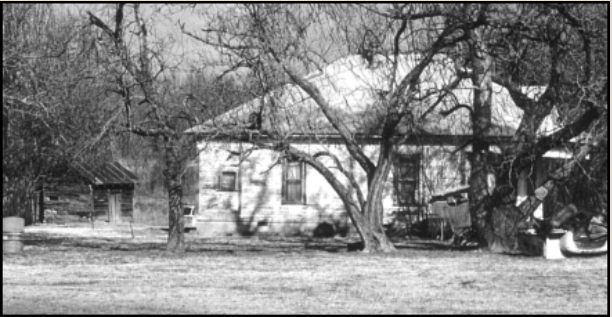North Fork Town originally started out as a Creek settlement in the early 1800s. It held a lot of influence and controlled trade in the area at one point. After the battle at Honey Springs, the Union and Confederate armies fought nearby in the town of Perryville. North Fork’s depot was destroyed. Soon, parts of the town were destroyed and some residents abandoned the location.
After the Civil War, the Creek Nation gave official status to North Fork Colored in 1869. By 1900, North Fork officially became an All-Black Town. The town prospered under the lead of Sugar T. George, a Creek freedperson, called the “Town King”. He represented North Fork on the Muskogee National Tribal Council in the House of Warriors and the House of Kings. He also served on the Tullahassee Mission School board, a Creek and Seminole freedmen school in an All-Black Town. On top of his duties, he acted as a legal witness for people in the community and helped write letters for those who were illiterate.
North Fork was one of the first places freedpersons could go after the Civil War in Oklahoma to build a safe and prosperous community. Although the town no longer exists, it helped pave the way for future All-Black Towns.

Bibliography:
Bays, Brad A. Material Culture 45, no. 1 (2013): 73–75. http://www.jstor.org/stable/24396741.
Johnson, Hannibal B. Acres of Aspiration: The all-Black Towns in Oklahoma. 1st ed. Austin, Tex: Eakin Press, 2002.
Tolson, Arthur L. “BLACK TOWNS OF OKLAHOMA.” The Black Scholar 1, no. 6 (1970): 18–22. http://www.jstor.org/stable/41163446.
Walton-Raji, A. Sugar T. George (1827-1900). BlackPast.org. (2007). https://www.blackpast.org/african-american-history/george-sugar-t-1827-1900/
0 comments on “North Fork Colored” Add yours →